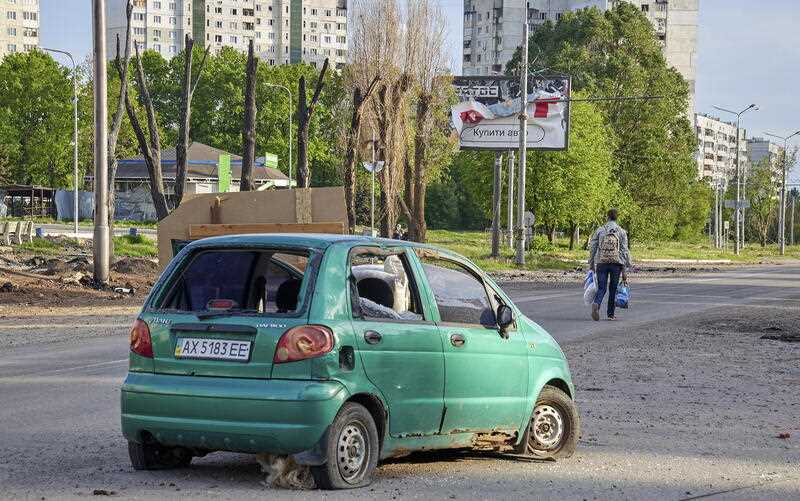Ukrainian forces have launched a counteroffensive near the Russian-held town of Izium in eastern Ukraine, a regional governor said, in what could prove a serious setback for Moscow’s plans to capture the entire Donbas region.
Russian forces have focused much of their firepower on the Donbas in a “second phase” of their invasion that was announced on April 19, after they failed to reach the capital Kyiv from the north in the early weeks of the war.
But Ukraine has been retaking territory in its northeast, driving the Russians away from its second-largest city of Kharkiv.
Keeping up pressure on Izium and Russian supply lines will make it harder for Moscow to encircle battle-hardened Ukrainian troops on the eastern front in the Donbas.
Ukrainian President Volodymyr Zelenskiy said the situation in Donbas remained very difficult, adding that Russian forces were still trying to salvage some kind of victory there.
“They are not stopping their efforts,” he said.
On Saturday, Ukraine’s Kalush Orchestra won the popular Eurovision Song Contest in Italy, a sign of how European public sentiment has swung in Kyiv’s favour since Russia’s invasion of the country.
Ukraine were in fourth place based on jury voting but viewer support catapulted the country into first place.
“Our courage impresses the world, our music conquers Europe! Next year Ukraine will host the Eurovision song contest,” Zelenskiy said in an online message.
In another token of international solidarity, US Republican senators paid an unannounced visit to Kyiv. The Republican delegation discussed further strengthening sanctions on Russia, Zelenskiy said.
Western analysts say Russian President Vladimir Putin failed to anticipate the fierce Ukrainian resistance – and the forceful global response – when he ordered the February 24 invasion.
As well as losing large numbers of men and military equipment, Russia has been hit by economic sanctions. The Group of Seven leading Western economies pledged in a statement on Saturday to “further increase economic and political pressure on Russia” and to supply more weapons to Ukraine.
DIPLOMATIC TREMORS
The war has prompted Finland to abandon its military neutrality and seek membership of NATO. Sweden is widely expected to follow suit.
Finnish President Sauli Niinisto told Putin that his country, which shares a 1,300km border with Russia, wanted to join NATO to bolster its own security.
Putin told Niinisto the move would be a mistake adding it could harm bilateral relations.
G7 MINISTERS BACK MORE AID
One of the aims of Russia’s action in Ukraine was to prevent the former Soviet republic ever joining NATO.
German Chancellor Olaf Scholz, who spoke to Putin by phone on Friday, said he detected no sign of any change in the Russian leader’s thinking on the conflict.
In an interview for the t-online news website published on Saturday, Scholz said Western sanctions on Russia would remain until it reached an agreement with Ukraine, adding: “Our aim is for this invasion to fail.”
Meeting in Germany, foreign ministers from the G7 group of rich nations backed giving Ukraine more aid and arms as well as to “expedite our efforts to reduce and end reliance on Russian energy supplies”.
Russian Foreign Minister Sergei Lavrov said the West’s sanctions amounted to a “total hybrid war” against Moscow but Russia would withstand sanctions by forging deeper partnerships with China, India and others.
Meanwhile, complex talks are still underway to evacuate wounded soldiers from the besieged Azovstal steel works in the port of Mariupol in return for the release of Russian prisoners of war.
A large convoy of cars and vans carrying refugees from the ruins of Mariupol arrived in the Ukrainian-controlled city of Zaporizhzhia on Saturday after waiting days for Russian troops to allow them to leave.
By Tom Balmforth and Jonathan Landay in KYIV/BEZRUKY



